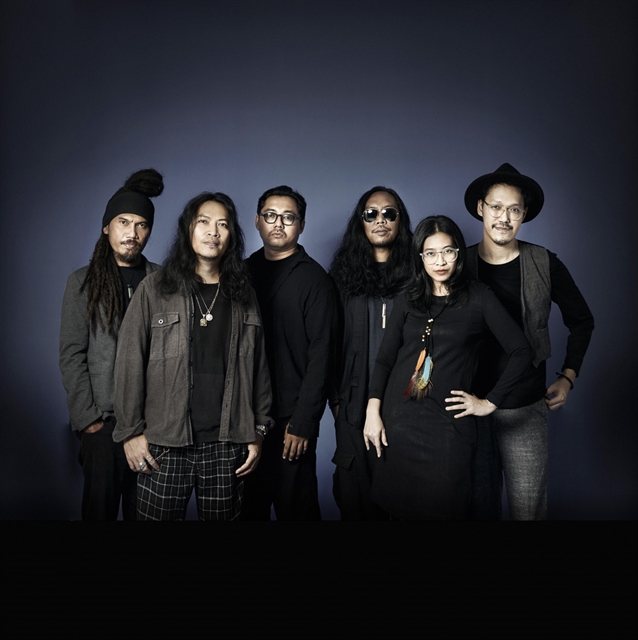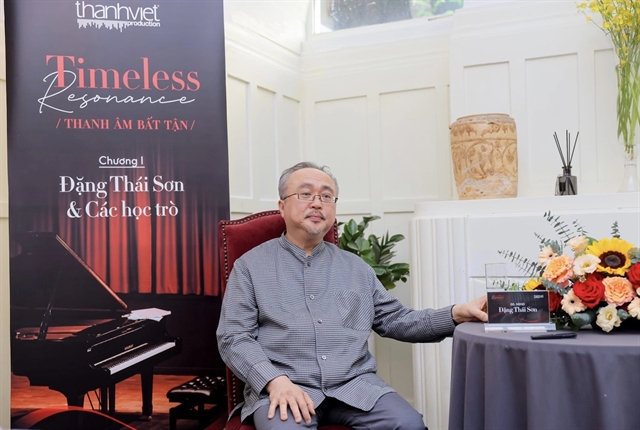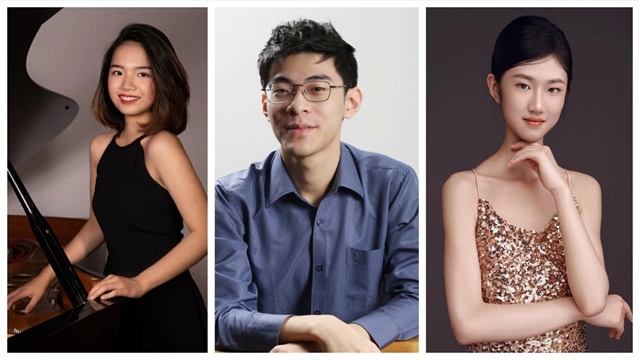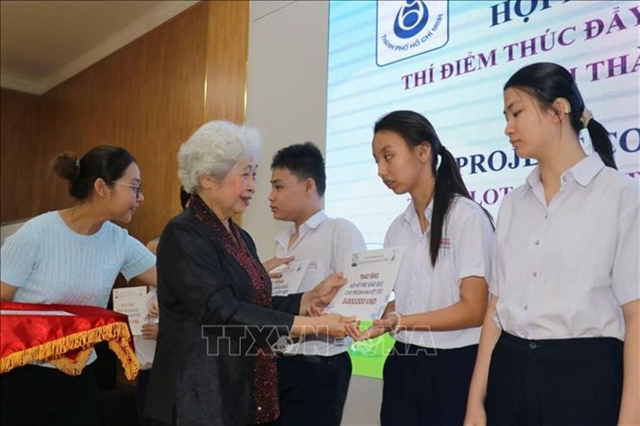 Life & Style
Life & Style
.JPG)
 |
| Pianist Đặng Thái Sơn. Photo coutersy of Thanh Việt Production |
Đặng Thái Sơn is a Vietnamese pianist with global renown, becoming the first Asian to win first prize in the X International Fryderyk Chopin Piano Competition in Warsaw.
His student Canadian pianist Bruce Xiaoyu Li also won the first prize at the XVIII Chopin competition.
Sơn will perform with his international students for the first time in Hà Nội and HCM City on June 2 and 3.
Vietnam News Agency's Thể Thao & Văn Hóa (Culture & Sports) daily reporter Lam Anh spoke with Sơn about the upcoming concerts.
Could you tell what is the reason for you performing with your students?
People still say, your path depends on your age. In the past, I have performed and judged at competitions. But teaching - which I jokingly call babysitting - chooses me.
After 20 years of teaching only in Canada, I accepted a teaching position at the Oberlin and New England conservatories in the US and the Beijing Central Conservatory of Music.
Previously, I was busy teaching 10 students, but now I have 30. Luckily, even though it was not an intentional choice from the beginning, teaching ignites a passion in me.
So organising performances with the students is essentially extra work for me at the age that I should be retired. But it is very meaningful and interesting.
With so many students, what criteria do you use in selecting those who will perform?
First of all, these are the students who are studying with me. The concert repertoire is diverse with pieces from the 18th to 20th centuries, with classical, romantic and modern styles.
I choose the students with diverse musical personalities for each concert. As in the first concert, there will be some who performs with an intense playing style, some who is romantic and some who possesses balance.
Actually, choosing students to perform with is not difficult, but it depends on their class and performance schedules, especially those who have participated and won at competitions.
Could you please describe some of the young artists?
Although I don't want to use sensational words, I have to say that Sophia Shuya Liu (born in 2008 in Shanghai, China) in my eyes is one of the prodigies.
With a precocious personality, Sophia learned to play the piano at the age of four and began participating in international competitions at the age of five.
The awards she has achieved include the first prize at the 18th Ettlingen International Piano Competition, class A in Germany and the first prize at the 2023 Thomas & Evon Cooper International Competition.
Kai-Min Chang (born 2001 in Taiwan, China) is also an artist with the strength to perform great works. This is a competitor at the quarter-finals of the XVIII Chopin International Piano Competition in Warsaw, Poland in 2021.
Finally, there is Zitong Wang (born 1999 in Inner Mongolia, China). Wang is currently pursuing his doctorate at the New England Conservatory of Music with me. To talk about Zitong Wang as well as my students, I want to mention the image of pianist Martha Argerich - who at the age of 80 still plays the piano with a youthful soul like she was 18 years old. My students in this concert all show such spirit.
 |
| From left to right Đặng Thái Sơn's students Zitong Wang, Kai-Min Chang, Sophia Shuya Liu. Photo thethaovanhoa.vn |
Why are all young artists at the concert from Asia?
The rise of Asia today has come not only from economics and sports but also music.
I remember when I took the Chopin competition, there were only a few Asian competitors. It's even easy for European judges to confuse one person with another.
My winning photo that year was mistakenly posted with other's photo. But now, there are Asian competitors at the competitions. Ninety per cent of my students are Asian.
It must be said that looking at Việt Nam in the late 19th century and early 20th century, its classical art scene was better than other countries in the region such as Thailand and Indonesia. But we've been proud for so long.
So now, the strength belongs to Singapore, Thailand, Malaysia and Indonesia. And the purpose of my concert this time can also be understood as 'ringing the bell' one more time.
What does teaching mean to you now?
It is said that spirituality and physical health are closely linked. Having many talented students will keep me healthy and looking at my students' achievements makes me feel more nutritious than drinking ginseng.
If a student gives me a headache, my health will be affected. If a student studies well, I will work tirelessly.
What are your teaching methods?
There are all kinds of methods, but I am usually flexible. I also evaluate students according to their learning spirit. There are students who are not very talented but have tried their best, so I teach in a gentle way.
As for students who are talented but lazy, I will prompt gently and if it doesn't work I will explain how he or she have to do better.
I will not accept a student who makes me shout.
So in your opinion, what is most important in teaching?
I think artistic personality is very important. That's why we can't do anything with the aesthetics of a child but we must accept each of them with their personality.
The difficulty in art teaching is that we have to follow the nature of each child thereby finding the right path for each child's development. — VNS
.JPG)



